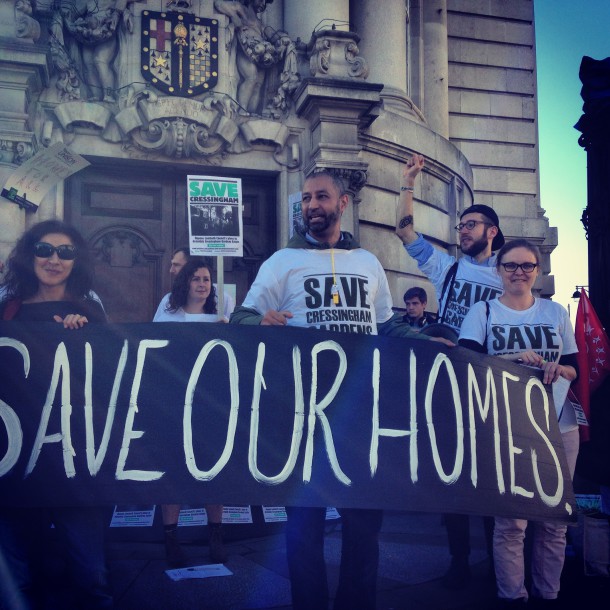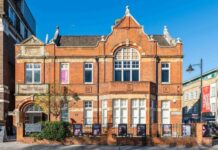 Where Will We Live? is a new play showcasing the diverse stories of Brixton people reacting to council estate demolition and social changes surrounding them. The play opens at Southwark Playhouse next week. The Bugle spoke to director Lucy Curtis, of the Changing Face art collective, and writer Elisabeth Winkler about the original piece.
Where Will We Live? is a new play showcasing the diverse stories of Brixton people reacting to council estate demolition and social changes surrounding them. The play opens at Southwark Playhouse next week. The Bugle spoke to director Lucy Curtis, of the Changing Face art collective, and writer Elisabeth Winkler about the original piece.
It’s not often that the voices of ordinary people are presented on stage. Where Will We Live is verbatim – constructed strictly from transcripts of people interviewed – and features 30 different characters, based on hundreds of hours of interviews conducted over several months with Brixton community figures.
The characters represent a range of views on gentrification and housing: from Lambeth Cabinet Member for Jobs and Growth Jack Hopkins, Cabinet Member for Housing Matthew Bennett, and other pro-regeneration actors, to those experiencing eviction from their homes and businesses.
Director Lucy Curtis, 24, was inspired to create the play when she started finding out about the Arches evictions and estate demolitions. She says: “Even in the arches where everyone is next door to each other, it can feel quite disconnected, like everyone’s battling their own struggles separately.
 “I realised there wasn’t one space where everyone could sit down and listen to each other in a relaxed environment. So the play is about getting people to come together in a really accessible space.”
“I realised there wasn’t one space where everyone could sit down and listen to each other in a relaxed environment. So the play is about getting people to come together in a really accessible space.”
The play deals with the planned demolition of Cressingham Gardens, Loughborough Park and other estates. Lucy says: “It was challenging because the play was continuously in development as was the situation itself.”
“It will continue to develop as a piece because it’s not over yet. It’s something to look at next year as well.”
For Elisabeth Winkler, journalist and writer who condensed the interview transcripts into a script, this was a labour of love. “The play’s gone through at least 25 redrafts,” she says.
Recent research by Birkbeck professor Dr Paul Watt found that 90 council estates in London are facing the possibility of demolition. “This is a huge devastation of the social fabric. We’re talking about communities, people’s relationships to each other.
“I personally think demolition is the last resort, from an economic and environmental point of view.”
Stella, who runs a hairdressing salon in the Arches, is one of the characters, talking about the shock of getting the notice to leave her business. “She’s invested so much and what she’s being offered might let her buy a new hairdressing chair and that’s it,” says Elisabeth.
How will the characters experience their portrayal by actors on stage? “The short answer is they’ll see the play, that will be the litmus test!” says Elisabeth. “I appreciate it’s very strange when you watch someone else playing you. But they’ve donated their words, their life story to this, and I’m very grateful that people do that.”
Lucy tells me some actors – who are all from the community – met the person they were to portray to learn more about them. “For me it was about getting people who resembled the characters,” she says. Many have faced eviction themselves, and have never acted in a theatre before.
The only fictional character is a town crier who shouts out headlines, putting the Brixton situation in its broader context.
“Hopefully the play will allow people to understand that pretty much everyone is in the same cycle, suffering from a very similar crisis and hopefully it will be able to wipe out people’s stereotypes about estates,” Lucy says.
Elisabeth emphasises the value of the original interviews, and says the collective aims to keep the raw material and make it publicly accessible. “The least you can do is record what is happening.”
You can book tickets here for Where Will We Live? at Southwark Playhouse from November 25 to 28. The Changing Face Art Collective was created in 2014 by a group of filmmakers, photographers, illustrators, theatre makers who specialise in verbatim and documentary theatre. It is a young multilingual collective with roots in eight different countries, which seeks to work with the community and create opportunities for young artists.














